The landscape of web API development in .NET is undergoing a significant transformation. For many years, ASP.NET Core MVC reigned supreme, offering a robust and structured approach to building APIs. However, with the introduction of Minimal API in .NET 6 and their continued enhancements in .NET 8, a new era has dawned — an era of streamlined development, efficient resource utilization, and a focus on developer experience.
Goodbye to Boilerplate, Say Hello to Simplicity
As we all know ASP.NET Core MVC often involves layers of configuration and controller setups. Minimal APIs don’t have this complexity as they offer a code-first approach with a focus on:
- Conciseness: Define API endpoints directly in your code with a clean and elegant syntax.
- Lesser Overhead: Ditch all the configuration files and embrace a streamlined development experience.
- Flexibility: Customise your API to specific needs without being confined by a stiff framework structure.
The Power of Code-Driven Endpoints
Let’s see Minimal APIs in action with a basic example:
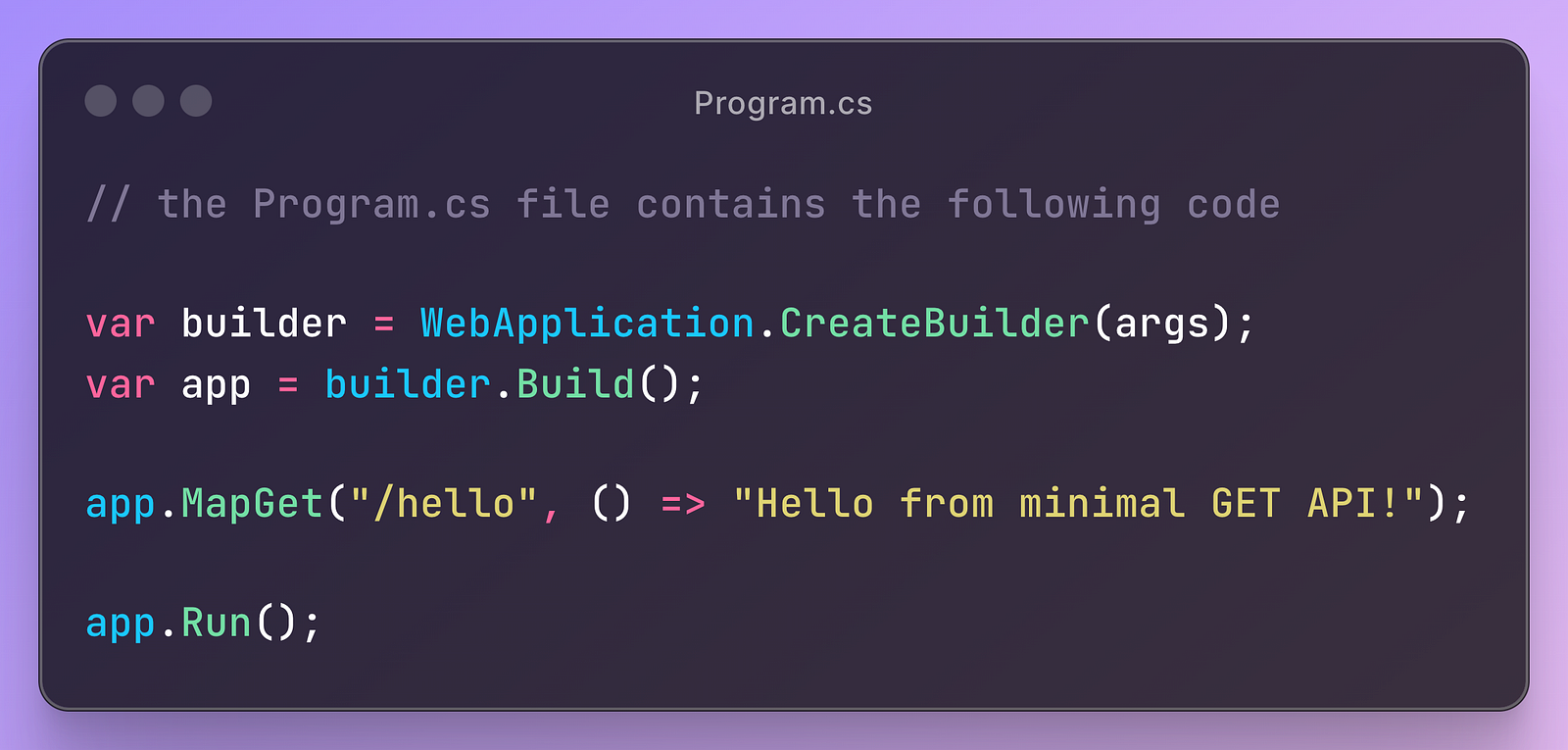
The above code creates a simple API with a single endpoint at /hello that returns a friendly greeting. Notice how the endpoint definition is concise and directly embedded in the code.
Beyond the Basics: Building Feature-Rich APIs
Minimal APIs stand out for their simplicity, but there is a lot more complex stuff that we could do with them. Here’s how to expand their capabilities:
- HTTP Methods: Define endpoints for various HTTP verbs (GET, POST, PUT, DELETE) to create a full-fledged RESTful API.

- Dependency Injection: Integrate seamlessly with ASP.NET Core’s dependency injection to manage dependencies effectively.
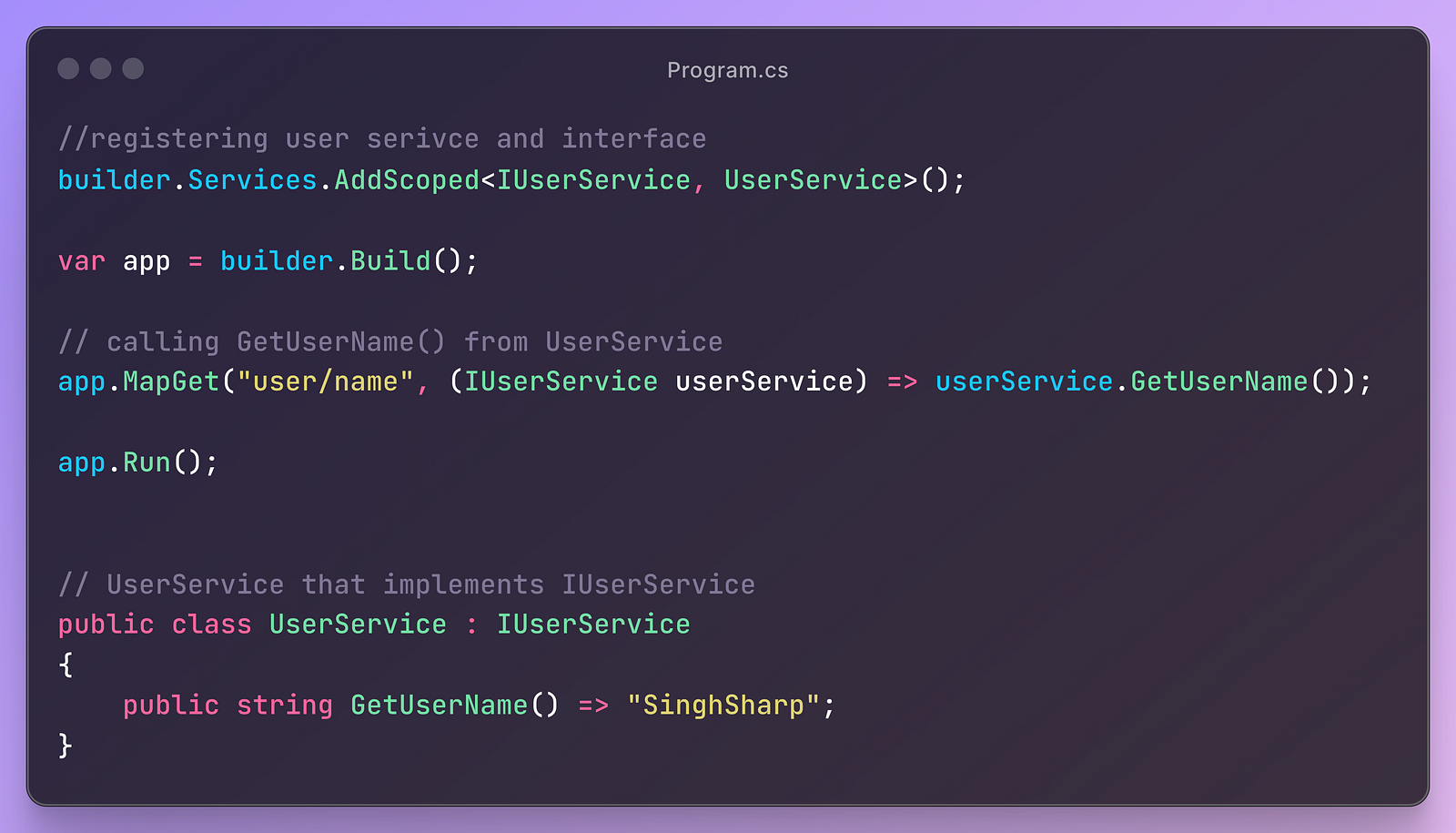
- Middleware: Leverage middleware components for functionalities like authentication, authorization, or logging.
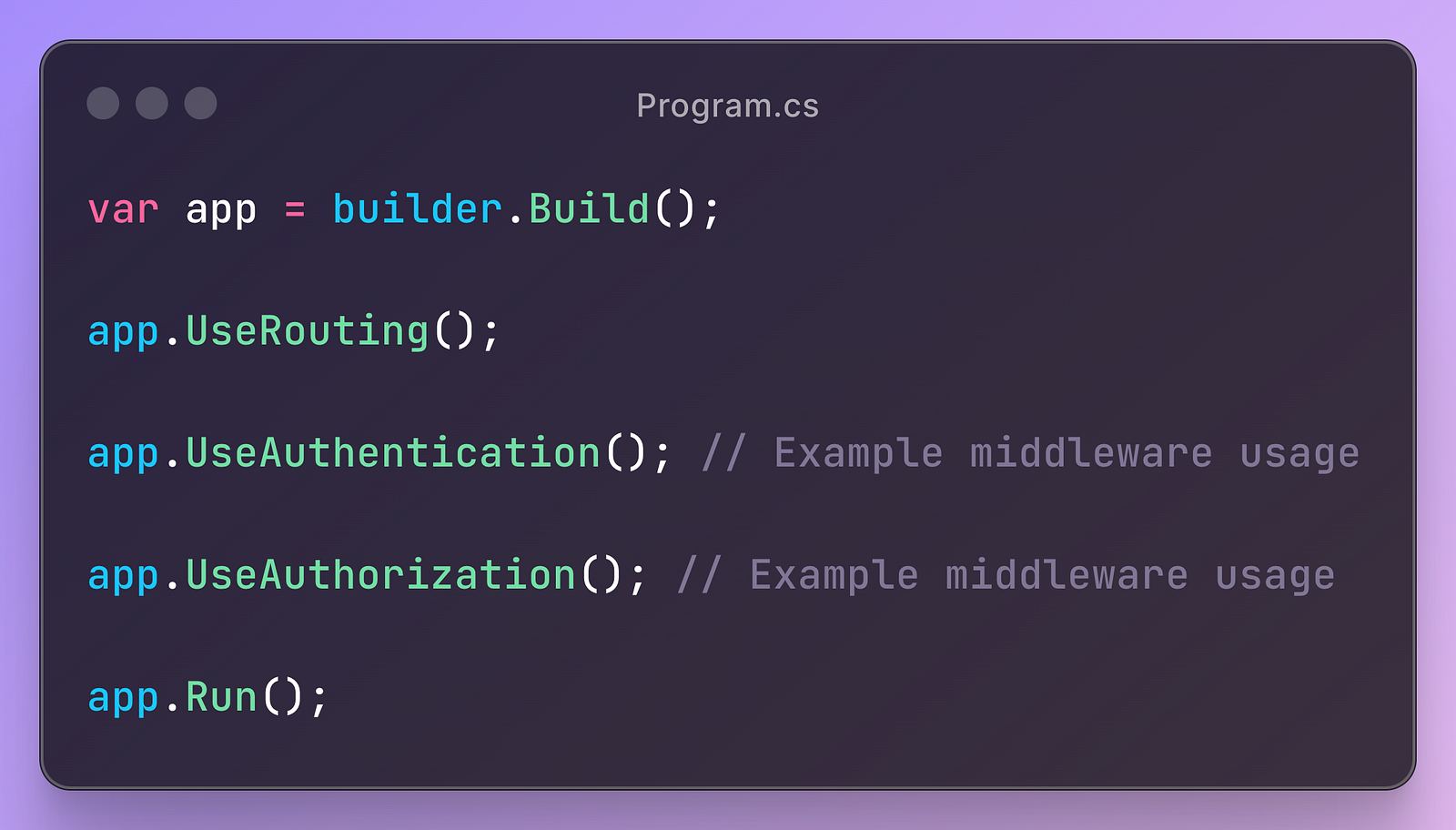
The Minimal API Advantage: Why Embrace the Change?
These are some compelling reasons to consider Minimal APIs for your next project:
- Faster Development: A streamlined development process translates to quicker turnaround times.
- Improved Performance: The lightweight nature leads to faster application startup and efficient resource utilization.
- Enhanced Developer Experience: The focus on code reduces cognitive load, making development more enjoyable.
- Ideal for Microservices: The modular design principles of Minimal APIs make them perfect for building microservices.
When are Minimal APIs the Right Choice?
Minimal APIs excel in scenarios where:
- You have to build a small, focused API quickly.
- Performance and resource efficiency are critical factors.
- You prefer a code-driven approach with minimal configuration.
For very complex APIs with complex business logic, traditional MVC might still be a better fit. However, Minimal APIs are rapidly evolving and becoming increasingly powerful.
The Future of .NET APIs: A Minimalist Outlook
Minimal APIs represent a significant shift towards a more developer-friendly and efficient approach to building web APIs using .NET. Their simplicity, performance benefits, and growing feature set make them a valuable tool for a wide range of projects. So, the next time you embark on an API development journey, consider embracing the Minimal API revolution and experience the difference firsthand!

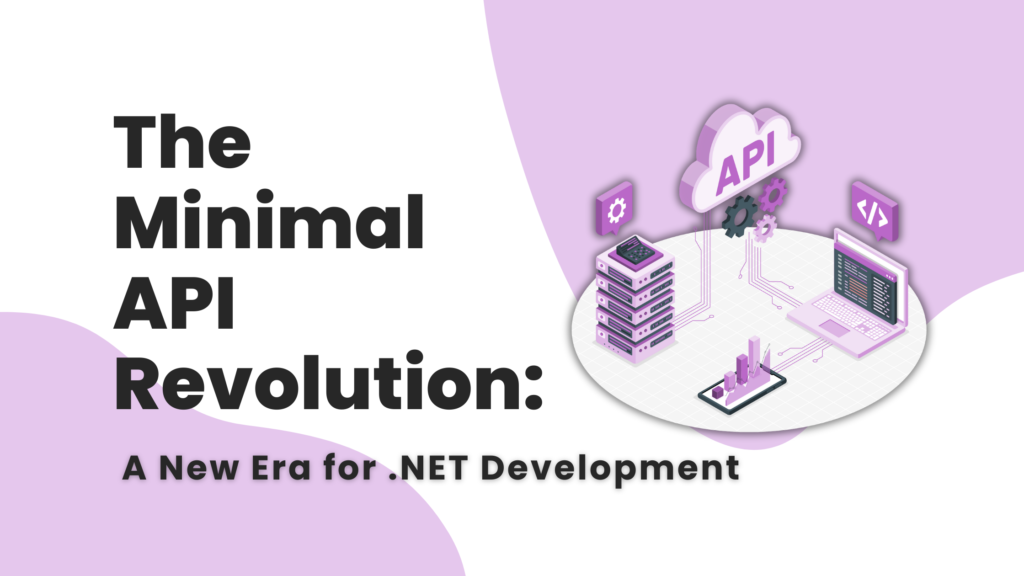
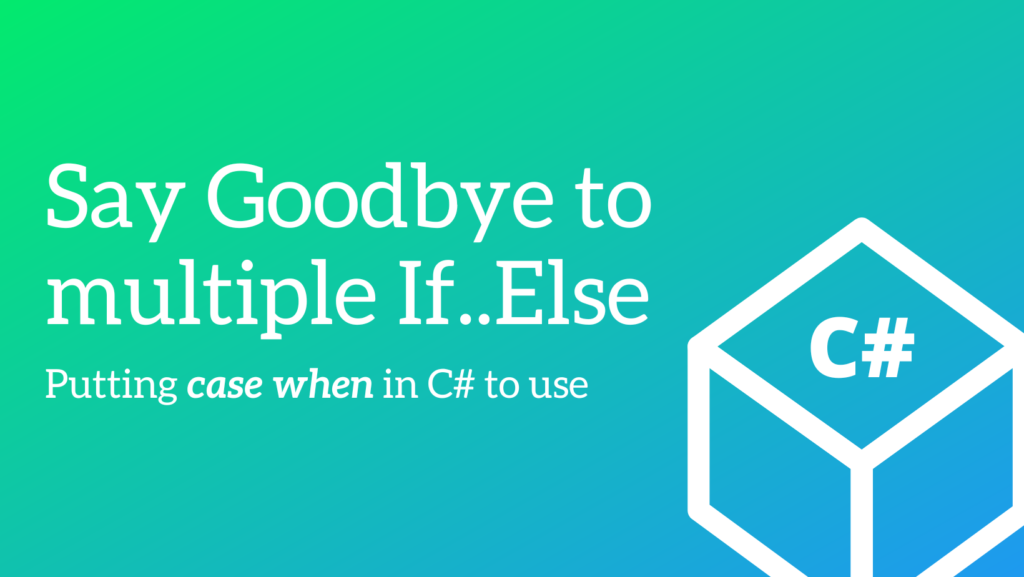
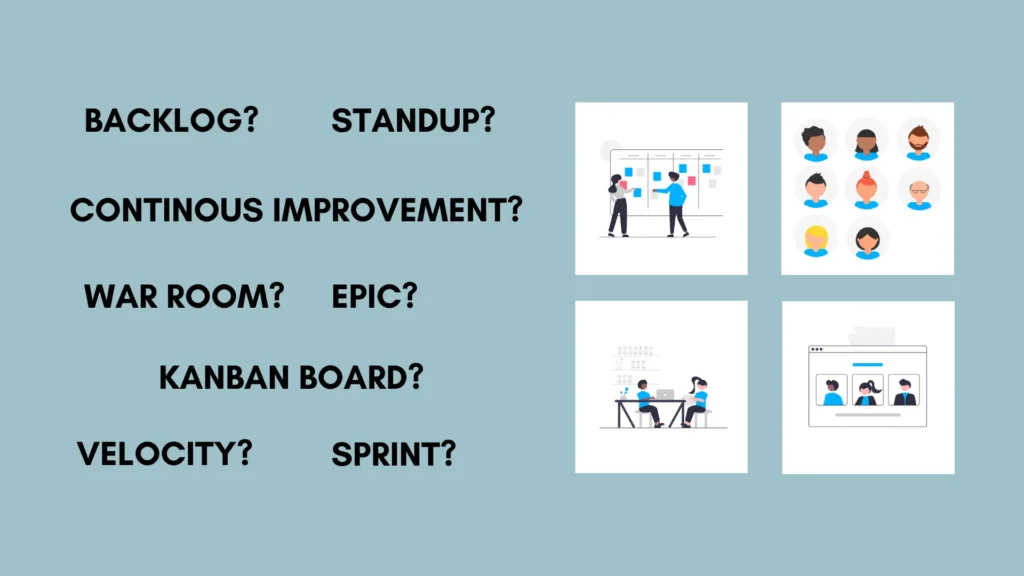
Thanks for posting